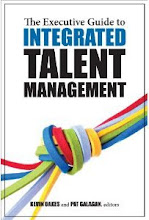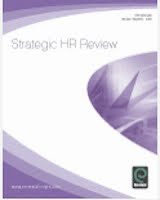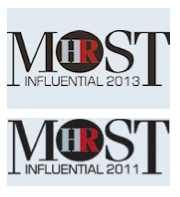My main trips for the last two weeks have been to Nicosia and Kiev where I’ve been speaking about talent management. However I’ve noticed that although much of the focus in the conferences has been around talent, most of the conversation has been around the broader societal factors which constrain or enable talent management.
IMH / PWC - 14th Management & Human Capital Conference
So in Cyprus, a panel following on from my two keynote sessions came up with the problem of what they described as talent killers - cultural practices which stop companies being able to manage talent as they would like.
In Cyprus, the main talent killer was seen to be the family culture of the country. So it doesn’t matter if a company wants a certain employee to focus on a certain area or work in a certain way, if this doesn’t align with the perspectives and needs of the family it isn’t going to happen.
I enjoyed the conversation, and particularly since my brother in law’s in-laws are Cyrpiot, have some direct experience of the family culture people were discussing. So I can understand the issue, but still tend to feel there must be some good opportunities for addressing it. Perhaps by interviewing a candidate together with representatives of the family for example, or by giving a contract to a family unit, reducing emphasis on which member of the family will be delivering it (a bit like McDonalds’ Friends and Family approach built up further for this even more for this more family oriented environment).
Of course you’d also need to avoid any tendency towards nepotism and I’d suggest here more focus on creating the organisation as a complementary family type unit, not to replace the real family but to take on more of its attributes in order to feel more resonant for employees.
PRP / Mondelez - Kyiv Employer Branding and Engagement Forum
Then in Ukraine, the panel following my keynote there seemed to focus heavily on the difficulty getting people to take responsibility for making things happen, especially in government. One of the panel even suggested the culture seemed almost infantile, with people wanting to have everything taken care of for them.
To an extent that resonated for me too. Eg I remember when I worked as an HR Director based in Moscow (and covered the Kiev office which I visited several times) that we had a couple of people whose jobs included organising holidays to the Russian sanitariums (and I stayed in one in Sochi myself.) I always thought that this travel agency function within the HR team, supported by broader Soviet traditions, contributed towards HR being seen in a very administrative sort of way.
Ukraine has clearly developed a lot since I was last there, though there seems still to be quiet a lot which hasn’t, eg there still seemed to be almost as many notary offices around as I remember. But I can accept a legacy reluctance to accept responsibility could be a significant talent killer there.
I think it’s also a harder killer to deal with than Cyprus’ family culture one. But I was interested to hear about some of the new leadership schemes operating in the country, taking high potentials away from the broader environment for a year and helping them to develop new values, which it is believed will be maintained through peer pressure as these people progress as business or public leaders within the country.
At home in the UK / in the US etc
These two experiences have got me thinking about the talent killers back at home, and in other Anglo Saxon cultures, too.
I think one of these is the high pay ratios I posted about yesterday. (Whilst these are designed to recognise talent I think they play a bigger role in distorting and destroying it.)
Another is probably a focus on dressing firms up to look more valuable rather than worrying about creating that value in the first place. The best example at the moment is Pfizer’s planned acquisition of Allergen to enable an inversion into Ireland’s lower tax regime.
Most M&A’s are a diversion away from the true value which could be created by a better focus on talent management.
However Pfizer’s latest transaction doesn’t even try to argue a case for synergies and hence value creation. As long as we remain more interested in moving bits of business around rather than investing in people and creating new products and services, I think we should expect that talent is going to continue to die.
But moving away from this culture is going to be even harder than addressing Ukraine’s lack of responsibility is going to be. But perhaps George Osbourne’s new Apprenticeship levy in the UK will be one part of rebalancing the economy in the UK, helping to tilt focus away from easy options to develop the right talent a company needs to build the business for the future?
What about you, what’s the main talent killer where you live, and what needs to be done about it?
- Consulting Research Speaking Training Writing
- Strategy - Talent - Engagement - Change and OD
- Contact me to create more value for your business
- jon [dot] ingham [at] strategic [dash] hcm [dot] com









































